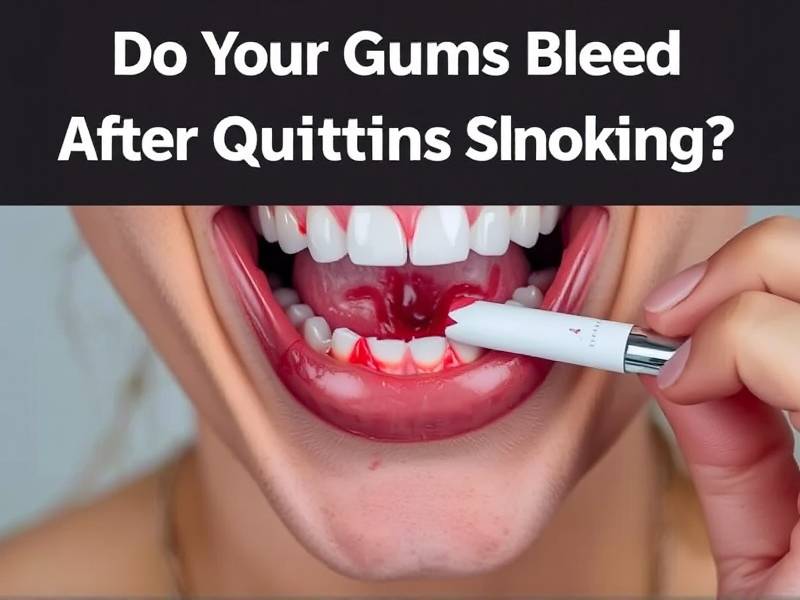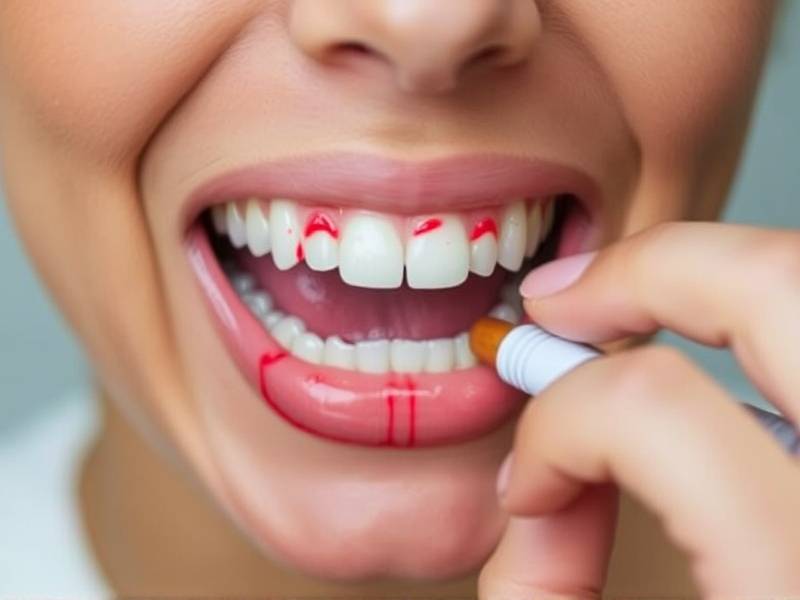Do Your Gums Bleed After Quitting Smoking? Find Out Why and What to Do
Do Your Gums Bleed After Quitting Smoking? Find Out Why and What to Do
Introduction: Quitting smoking is a significant step towards a healthier life, but it often comes with unexpected challenges. One common issue many ex-smokers face is bleeding gums. If you've recently quit smoking and noticed blood when brushing your teeth or flossing, you're not alone. In this article, we'll explore the reasons behind bleeding gums after quitting smoking and provide practical tips on how to manage this condition effectively.
Why Do Gums Bleed After Quitting Smoking?

-
Nicotine Withdrawal: Nicotine, a powerful stimulant found in cigarettes, causes blood vessels in the gums to constrict. When you quit smoking, these blood vessels may become more sensitive and prone to bleeding. This is a temporary phase that usually resolves within a few weeks.
-
Improved Blood Circulation: Quitting smoking improves overall blood circulation in the body, including the gums. This increased blood flow can lead to inflammation and sensitivity in the gum tissue, causing bleeding.
-
Gum Disease: Smokers are at a higher risk of developing gum disease due to the harmful effects of tobacco on oral health. If you've been smoking for an extended period, you may have underlying gum disease that becomes more apparent after quitting.
-
Poor Oral Hygiene: Smokers often have poor oral hygiene habits due to bad breath concerns or limited time for brushing and flossing. Improving oral hygiene practices can help prevent bleeding gums.
What Can You Do About Bleeding Gums?
-
Practice Good Oral Hygiene: Brush your teeth at least twice a day with fluoride toothpaste and floss daily. Use a soft-bristled toothbrush to avoid damaging your gums further.
-
Use Antiseptic Mouthwash: An antiseptic mouthwash can help reduce inflammation and kill bacteria in your mouth that contribute to gum disease.
-
Avoid Harsh Chemicals: Avoid using harsh chemicals or whitening toothpaste until your gums heal completely as they can further irritate the tissue.
-
Stay Hydrated: Drinking plenty of water helps maintain healthy saliva flow, which aids in keeping your mouth clean and reducing bacterial growth.

-
Visit Your Dentist Regularly: Regular dental check-ups are crucial for monitoring your oral health and detecting any potential issues early on.
-
Be Patient: Remember that it takes time for your gums to heal after quitting smoking. Give yourself at least three months before expecting significant improvement in your gum health.
Conclusion: Bleeding gums after quitting smoking can be unsettling but is usually a temporary side effect of improving your oral health and overall well-being. By practicing good oral hygiene, using antiseptic mouthwashes, staying hydrated, and visiting your dentist regularly, you can effectively manage this condition while enjoying the benefits of a smoke-free life. Remember that patience is key during this healing process as your body adjusts to its new smoke-free state.
